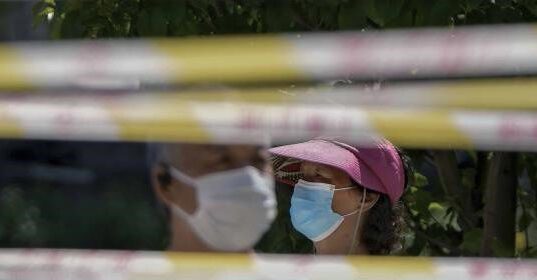BTN News: Nassau County, located in New York, has recently made headlines by becoming the first region in the United States to implement a ban on the use of masks in public spaces, except for specific instances related to religious, health, or cultural needs. This groundbreaking move was officially set into motion when Bruce Blakeman, the executive member of Nassau County, signed the legislation on Wednesday, instantly enacting the new law. The bill, initially passed earlier in the month by the Republican-controlled Nassau County Legislature, aims to enhance public safety by preventing violent protesters from concealing their identities. However, the decision has sparked a significant debate, with supporters and critics voicing their concerns.
The legislation, championed by 12 Republican lawmakers, who voted in favor, is seen as a proactive measure to address security issues that have arisen during public demonstrations. They argue that by limiting the ability to hide behind masks, law enforcement will be better equipped to maintain order and identify those engaging in unlawful activities. However, the measure wasn’t without its detractors. The seven Democratic members of the Legislature chose to abstain from voting, reflecting the contentious nature of the law.
The New York Civil Liberties Union (NYCLU) has been vocal in its opposition to the mask ban, criticizing it as a direct violation of the freedom of expression. In a strongly worded statement, the NYCLU highlighted the potential dangers of such a law, especially considering the historical and recent context of mask usage. During the COVID-19 pandemic, masks became a crucial tool for public health, mandated by law in several states to curb the spread of the virus. Now, as the pandemic has subsided, this new law flips the script, turning mask-wearing from a legal requirement into a punishable offense in Nassau County.
The NYCLU’s concerns extend beyond the general infringement on rights; they specifically point out that this ban could be misused to target certain groups, particularly those involved in protests. The organization notes that in recent times, similar bans have been employed against pro-Palestinian demonstrators, raising alarms about the selective enforcement of such laws. The NYCLU argues that this legislation could disproportionately affect marginalized communities, including people with disabilities, people of color, and those holding unpopular opinions, by putting them at greater risk during public demonstrations.
Under the new law, individuals found in violation could face severe penalties, including up to a year in jail and a fine of $1,000. The heavy-handed nature of these penalties has further fueled the debate, with critics arguing that the law represents an overreach of governmental power and an infringement on civil liberties. The question of balancing public safety with individual rights has once again come to the forefront, with Nassau County’s new legislation serving as a flashpoint for this ongoing national conversation.
Interestingly, this move by Nassau County comes at a time when New York’s state-level leadership is also grappling with the issue of mask mandates, albeit in a different context. In June, Governor Kathy Hochul hinted at the possibility of ending the mask requirement on New York City’s subway system. However, no concrete plans have been announced, leaving the future of mask regulations in the city uncertain.
The Nassau County mask ban marks a significant shift in the narrative surrounding masks in the U.S. Once a symbol of collective responsibility during a global health crisis, masks are now at the center of a legal and political battle. As this legislation takes effect, it remains to be seen how it will impact public safety, civil liberties, and the broader national discourse on the rights of individuals in the public sphere.


